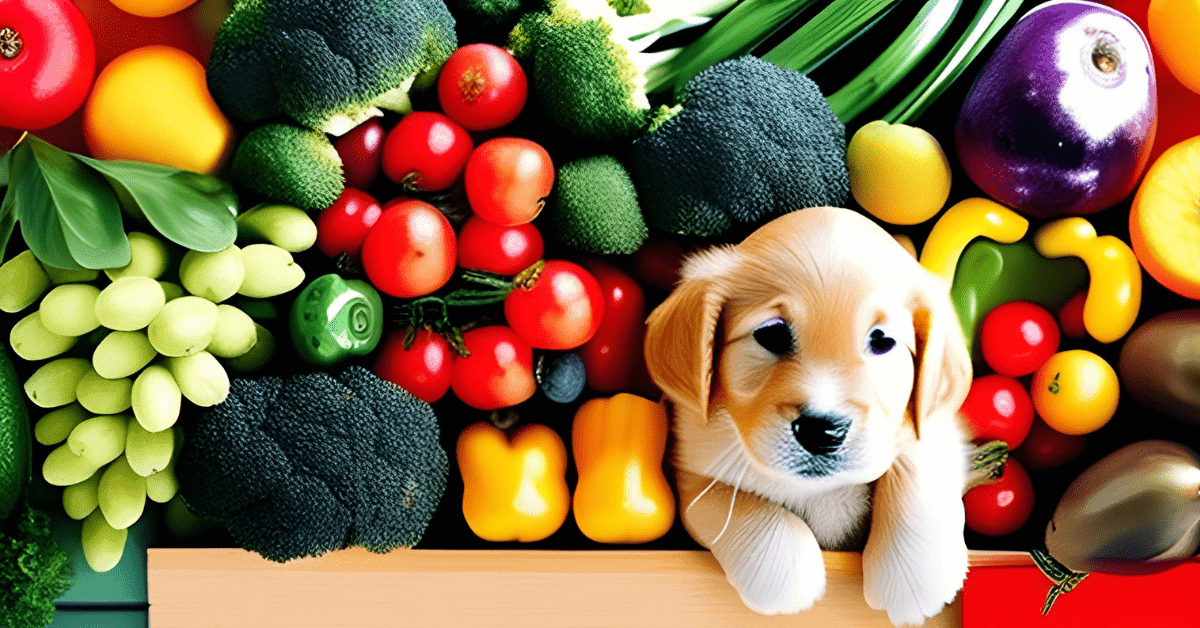Don't let your furry friend suffer in the cold. This article provides essential tips to…

Choosing the Right Puppy Food
Do you need some help choosing the right puppy food to support your furry friend’s growth and development? Look no further!
This article will guide you through the essential nutrition requirements for your puppy’s diet. From high-quality protein sources to vital vitamins and minerals, we’ll help you make informed choices.
We’ll also explore the debate between grain-free and grain-inclusive diets, the importance of calcium and phosphorus ratios, and the benefits of natural ingredients.
Prepare to provide your pup with optimal nutrition for optimal growth and health.
Table of Contents
- Key Takeaways
- Puppy Dietary Requirements
- High-Quality Protein Sources for Puppies
- Vitamins and Minerals Essential for Puppy Development
- Grain-Free vs. Grain-Inclusive Puppy Diets
- Calcium and Phosphorus Ratios for Growing Dogs
- Wet vs. Dry Puppy Food Benefits
- Natural Ingredients in Puppy Food Formulas
- Feeding Schedule for Puppies by Age
- Transitioning from Puppy to Adult Dog Food
- Potential Allergens and Sensitivities in Puppy Diets
- Frequently Asked Questions: Choosing the Right Puppy Food
- Conclusion: Choosing the Right Puppy Food
- Further Puppy Food Information
Key Takeaways
- Understand the puppy’s dietary requirements for proper nutrition and growth
- Choose puppy food brands formulated specifically for their needs
- Be aware of common allergens and potential food allergies in puppies
- Consult with a veterinarian for guidance on the best puppy food option
Puppy Dietary Requirements
You must understand your puppy’s dietary requirements to ensure they get the proper nutrition for their growth. Puppy weight management is crucial during this stage to support their overall health and development. It is essential to choose puppy food brands specifically formulated for their needs. These brands undergo extensive research to ensure the right balance of nutrients, vitamins, and minerals for your growing pup.
Regarding puppy food allergies, it’s important to be aware of common allergens such as wheat, corn, soy, and artificial additives. Consider your puppy’s adverse reactions after consuming certain ingredients and consult a veterinarian if needed. Homemade puppy food can be an alternative, but it requires careful planning and knowledge of their nutritional requirements.
Furthermore, staying informed about puppy food recalls is crucial. Keep yourself updated on any recalls related to specific brands or puppy food batches to avoid potential health risks. Always check the manufacturer’s website or the FDA’s recall list for the latest information.
High-Quality Protein Sources for Puppies
When feeding your pup, focusing on high-quality protein sources for optimal growth is important. Protein is an essential nutrient for puppies as it provides the building blocks for muscle development and overall growth. Here are three key protein sources that are rich in amino acids and growth nutrients, crucial for puppy nutrition:
- Chicken: Chicken is a popular protein source in puppy food due to its high-quality protein content. It is rich in essential amino acids, such as lysine and leucine, vital for muscle growth and repair.
- Fish: Fish, such as salmon or trout, is another excellent protein source for puppies. It provides essential amino acids and contains omega-3 fatty acids, which support brain development and a healthy coat.
- Eggs: Eggs are a great source of protein and contain amino acids that are easily digestible for puppies. They provide essential nutrients like choline, which is important for brain development.
Including these high-quality protein sources in your pup’s diet will ensure they receive the necessary amino acids and growth nutrients for optimal muscle development and overall growth. Remember to consult your veterinarian to determine the appropriate amount of protein for your puppy’s needs.
Vitamins and Minerals Essential for Puppy Development
To ensure optimal development in your pup, it’s crucial to include essential vitamins and minerals in their diet. Vitamin supplementation and meeting mineral requirements are important factors in supporting your puppy’s growth and overall health.
Vitamins such as A, D, E, and B-complex play a vital role in immune system development, brain development, and bone growth. Vitamin A is essential for maintaining healthy skin, vision, and the immune system. Vitamin D is necessary for proper calcium absorption and bone growth. Vitamin E acts as an antioxidant, protecting cells from damage. B-complex vitamins are involved in energy metabolism and neurological function, supporting brain development.
Minerals like calcium, phosphorus, and magnesium are crucial for bone development and strength. Iron is needed for oxygen transport in the body, while zinc supports immune function and wound healing. Copper is important for connective tissue development, and selenium acts as an antioxidant.
A balanced diet with adequate vitamin and mineral content is essential for your puppy’s growth and development. Now, let’s explore the different aspects of grain-free vs. grain-inclusive puppy diets and their impact on your pup’s nutrition and well-being.
Grain-Free vs. Grain-Inclusive Puppy Diets
If you’re considering grain-free or grain-inclusive options for your pup, it’s important to understand the potential impact on their overall health and well-being. The grain-free controversy has been a hot topic in the pet food industry, with proponents claiming that it can provide health benefits such as improved digestion and reduced allergies. However, weighing these potential benefits against the risks is crucial.
Here are a few things to consider:
- Health benefits: Pet owners often prefer grain-free diets because they believe they mimic a dog’s ancestral diet. These diets typically contain high-quality protein sources and can benefit dogs with specific dietary needs or sensitivities.
- Potential risks: While grain-free diets may have advantages, it’s important to note that they can also lack certain essential nutrients, such as fiber and certain vitamins and minerals. Additionally, some grain-free diets may substitute grains with other ingredients that may not be suitable for all dogs.
- Alternative options: If you’re concerned about the potential risks of a grain-free diet, alternative options are available. Grain-inclusive diets can provide a balanced nutrition profile and may be a suitable choice for your pup.
Understanding the grain-free controversy and considering the potential risks and benefits of different puppy diets is crucial in making an informed decision for your furry friend’s health.
Now, let’s delve into another important aspect of puppy nutrition: calcium and phosphorus ratios for growing dogs.
Calcium and Phosphorus Ratios for Growing Dogs
Understanding the importance of calcium and phosphorus ratios is essential for the healthy development of growing dogs.
Calcium and phosphorus are vital minerals that are crucial in bone development and overall growth. Calcium is responsible for strong bones and teeth, while phosphorus aids energy metabolism and cell function. Maintaining a proper balance between these two minerals is important to ensure optimal growth and prevent any nutrient deficiencies or imbalances.
Calcium absorption is influenced by a dog’s diet’s ratio of calcium to phosphorus. An imbalance in this ratio can lead to problems such as skeletal abnormalities, growth disorders, and poor bone development. Maintaining a calcium-to-phosphorus ratio of approximately 1:1 to 2:1 for growing dogs is recommended.
To further emphasize the importance of calcium and phosphorus ratios, let’s take a look at the table below:
| Calcium (g) | Phosphorus (g) | Calcium to Phosphorus Ratio |
|---|---|---|
| 1.5 | 0.75 | 2:1 |
| 2 | 1 | 2:1 |
| 1 | 1 | 1:1 |
| 0.5 | 1 | 1:2 |
As you can see from the table, maintaining the recommended ratios ensures a balanced nutrient intake for your growing dog. It is important to consult with a veterinarian or a canine nutritionist to determine the specific needs of your dog based on their breed, age, and growth rate. Providing a diet promoting proper calcium and phosphorus ratios can support healthy bone development and overall growth in your furry friend.
Wet vs. Dry Puppy Food Benefits
When comparing wet and dry puppy food, it’s important to consider the benefits of each option. Both wet and dry puppy food have their advantages, and understanding these can help you make an informed decision for your furry friend’s nutrition.
- Wet Puppy Food Benefits:
- Higher moisture content: Wet puppy food contains a higher water content, which helps keep your puppy hydrated and promotes healthy digestion.
- Enhanced palatability: The moist texture and rich flavors of wet puppy food can be more appealing to picky eaters, ensuring they consume the necessary nutrients.
- Variety of options: Wet puppy food offers a wide range of flavors and textures, allowing you to provide your puppy with a diverse and enjoyable mealtime experience.
- Dry Puppy Food Benefits
- Dental health: The crunchy texture of dry puppy food helps remove plaque and tartar buildup, promoting good oral hygiene and reducing the risk of dental issues.
- Convenient storage and feeding: Dry puppy food can be easily stored and remains fresh for longer. It is also more convenient for feeding on the go or when you have a busy schedule.
- Cost-effective: Dry puppy food tends to be more affordable than wet options, making it a budget-friendly choice for pet owners.
Natural Ingredients in Puppy Food Formulas
To ensure your furry friend’s health and well-being, looking for natural ingredients when selecting a puppy food formula is important. Organic ingredients are an excellent choice as they are grown without synthetic pesticides or fertilizers. These ingredients are not only better for the environment, but they also provide your puppy with a nutritious and wholesome diet.
In addition to organic ingredients, you should also consider puppy food formulas with limited ingredients. These formulas contain fewer ingredients, making identifying and avoiding potential allergens easier. Hypoallergenic options are also available for puppies with specific dietary needs or sensitivities.
Raw food diets have gained popularity among pet owners, and some puppy food formulas offer this option. Raw food diets aim to mimic the natural diet of wild dogs, providing puppies with various meats, fruits, and vegetables.
IMPORTANT
It is important to note that raw food diets require careful handling and preparation to minimize the risk of bacterial contamination.
Lastly, look for puppy food formulas that use human-grade ingredients. This means that the ingredients used in the formula are of the same quality and safety standards as those used in human food. Human-grade ingredients ensure that your puppy is getting the best possible nutrition.
Feeding Schedule for Puppies by Age
Feeding your puppy on a consistent schedule is important for their development and overall health. A well-planned feeding schedule ensures your puppy receives the appropriate nutrients at the right times, supporting their growth and nutritional needs.
Here are three key factors to consider when establishing a feeding schedule for your puppy:
- Portion control: Puppies have specific dietary requirements, and it is crucial to measure their food accurately to avoid overfeeding or underfeeding. Follow the guidelines from your veterinarian or the puppy food manufacturer to determine the appropriate portion size for your furry friend.
- Meal frequency: Puppies have smaller stomachs, requiring more frequent meals than adult dogs. Typically, puppies should be fed three to four times a day until they are around four months old. As they age, you can gradually reduce the number of meals to two times a day.
- Puppy growth stages: Puppies experience rapid growth during their first year, and their nutritional needs change accordingly. It is important to adjust their feeding schedule and portion sizes to support their growth at each stage, ensuring they receive the right balance of nutrients for optimal development.
By following a consistent feeding schedule that considers portion control, meal frequency, and their changing nutritional needs, you can help your puppy thrive.
As your puppy grows, it will eventually be time to transition from puppy food to adult dog food, which we will explore in the next section.
Transitioning from Puppy to Adult Dog Food
Once your puppy reaches a certain age, you’ll want to switch them to adult dog food. Transitioning from puppy to adult dog food is an important step in ensuring your furry friend receives the proper nutrition to support their growth and development.
During growth, puppies have unique dietary needs that differ from adult dogs. Puppy nutrition is focused on providing the right balance of nutrients for optimal growth, including higher levels of protein and fat. However, as your puppy matures, their nutritional requirements change, and they require a diet specifically formulated for adult dogs.
Adult dog food is designed to provide the necessary nutrients to maintain their overall health and well-being. It typically has lower levels of protein and fat to support a stable weight and reduce the risk of obesity.
It is essential to gradually transition your puppy to adult dog food to avoid any digestive upset. Start by mixing a small amount of adult dog food with their current puppy food, gradually increasing the ratio over a week or two until they are solely eating adult dog food.
By making this transition, you ensure your dog’s dietary needs are met.
Now, let’s discuss potential allergens and sensitivities in puppy diets.
Potential Allergens and Sensitivities in Puppy Diets
When choosing the right puppy food, be aware of potential allergens and sensitivities.
It is important to understand that puppies, just like humans, can have food allergies or sensitivities that can cause discomfort or health issues. By being mindful of your puppy’s diet ingredients, you can help prevent any adverse reactions.
Here are some common potential allergens and sensitivities to watch out for:
- Grains: Some puppies may have sensitivities to grains such as wheat, corn, or soy. These ingredients are often used as fillers in commercial puppy foods, so it is important to read the labels carefully.
- Protein sources: Puppies can also develop allergies to certain protein sources, such as chicken or beef. If you notice your puppy experiencing digestive issues or skin problems after consuming a specific protein, it may be worth trying an alternative protein source.
- Artificial additives: Artificial colors, flavors, and preservatives can also contribute to food sensitivities in puppies. Opting for a natural or hypoallergenic puppy food can help minimize the risk of adverse reactions.
Managing food sensitivities in puppies requires careful observation and trial and error. If you suspect your puppy has a food allergy or sensitivity, consult your veterinarian for guidance. They can help you choose a suitable hypoallergenic puppy food and develop a plan to manage your puppy’s specific dietary needs.
Frequently Asked Questions: Choosing the Right Puppy Food
What Are Some Common Allergens in Puppy Diets?
When choosing puppy food, it’s important to be aware of common allergens. Grains, chicken, beef, dairy, and soy are potential triggers. To ensure optimal nutrition and growth, consider avoiding these ingredients if your puppy has allergies.
How Do I Determine the Appropriate Feeding Schedule for My Puppy Based on Their Age?
Consider puppy nutrition guidelines to determine the appropriate feeding schedule for your puppy based on their age. Balance their diet with age-appropriate puppy food to meet their growth requirements.
Is It Better to Feed My Puppy Wet or Dry Food?
Feeding your puppy wet or dry food depends on various factors. Wet food provides more moisture and can be easier to eat, while dry food promotes dental health. Consider the nutritional differences, cost comparisons, and long-term health effects before deciding.
What Ingredients Should I Look for in a High-Quality Puppy Food Formula?
When choosing puppy food, consider nutritional requirements and ingredients. Look for high-quality brands that offer grain-free options and a variety of protein sources. Meeting your puppy’s nutritional needs is essential for healthy growth.
How Do I Transition My Puppy From Puppy Food to Adult Dog Food?
To transition your puppy from puppy food to adult dog food, remember it’s a gradual change. Start by mixing small amounts of adult food with their current food, gradually increasing the ratio. Monitor their nutritional needs and adjust portion control accordingly.
Conclusion: Choosing the Right Puppy Food
In conclusion, choosing the right puppy food is crucial for your furry friend’s proper growth and development. Ensuring they have a diet that meets their specific nutritional requirements sets them up for a healthy and happy life.
High-quality protein sources, vitamins, minerals, and the right balance of calcium and phosphorus are all essential for their growth. Additionally, considering natural ingredients and potential allergens can help prevent any sensitivities.
Remember to follow a feeding schedule based on their age and gradually transition them to adult dog food.
Further Puppy Food Information
Here are two further links for your “choosing the right puppy food” research:



